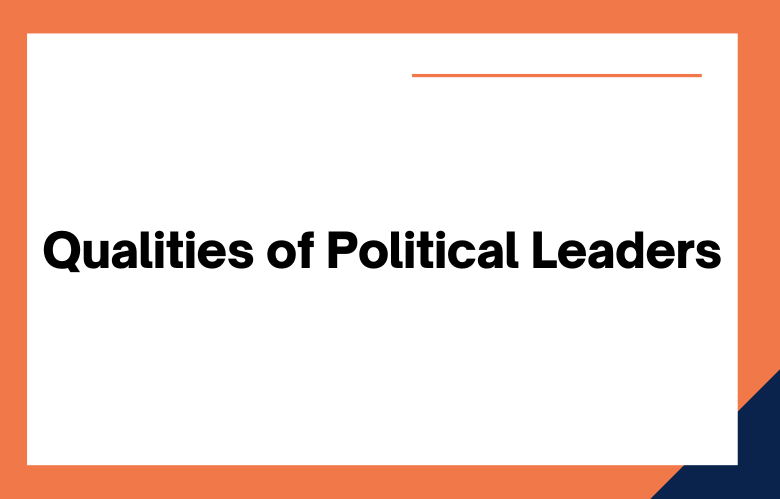Technology has changed almost every aspect of our lives. From the economy, education, healthcare, and even politics – technology is now a critical tool for political leaders to connect with their constituents, build their brand, and communicate their message to the masses.
This post will provide technical advice for political leaders on using technology effectively to project their message, listen to the people’s voices, and deliver sustainable solutions.
What is Technical Advice for Political Leaders?
Technical advice is information or guidance from a technical expert, such as an engineer, scientist, or economist, to help policymakers make evidence-based decisions.
Technical advice is based on a comprehensive understanding of an issue’s relevant scientific, social, economic, and political contexts.
Technical experts provide policymakers with detailed information on critical factors and recommend different strategies to help policymakers make informed decisions.
However, given the complexity of today’s issues, many decisions require technical knowledge and expertise beyond what they possess.
This is where technical advice comes in. Technical advice provides politicians with the specialized knowledge and skills they need to make informed decisions that reflect the best interests of their constituents.
Why is Technical Advice Important for Political Leaders?
Technical advice is essential in politics because it allows policymakers to make more informed decisions based on scientific and economic data. The result can be disastrous when policymakers make policies without consulting technical experts.
Technical advice can help politicians and political leaders understand the issues they are dealing with and make decisions they know will work.
Technical advice also helps policymakers avoid implementation failure, saving taxpayers’ money and reducing political backlash. Technical advice is politically safe and vital to policymakers making difficult decisions in a politically charged environment.
How Can Political Leaders and Politicians Use Technical Advice?
Political leaders and politicians can use technical advice in various ways. They can consult with technical experts on specific policy proposals or plans and seek technical advice on implementing particular policies.
Political leaders can also use technical advice to help them address complex issues that require a comprehensive, interdisciplinary approach.
Political leaders and politicians can use technical advice to develop innovative solutions to their issues.
Technical Advice for Politicians: What It Is, Why It Matters, and How to Get It?
As political leaders, politicians need to make decisions based on accurate information and sound reasoning.
However, given the complexity of today’s issues, many decisions require technical knowledge and expertise beyond what they possess.
This is where technical advice comes in. Technical advice provides politicians with the specialized knowledge and skills they need to make informed decisions that reflect the best interests of their constituents.
We will explore technical advice and why it’s important for politicians. We will also provide tips on how political leaders can get access to the technical advice they need to make better decisions.
Technical Advice for Politicians: How to Utilize Technology for Your Politics?
In today’s digital age, technology has played an integral role in shaping society and politics. With the rise of social media and online communication, politicians must learn to navigate and utilize technology effectively to stay ahead of the curve.
However, with a constantly evolving technological landscape, keeping up with the latest innovations and trends can take time. We’ll explore technical advice to help politicians or political leaders stay on the cutting edge of technology and use it to their advantage.
Social Media Strategy:
Social media has become a powerful tool in politics. It facilitates authentic conversations between leaders and voters and also enables politicians to shape their brand, connect with new voters, and energize their existing supporters.
The trick to making social media work for you is to have a strategy and use it sparingly.
A successful process would involve building your presence on key platforms like Twitter, Facebook, and Instagram and having a social media team create and curate content that resonates with your desired audience.
Embrace Big Data:
Big data is one of our most significant technological advancements. It can help you better understand your constituents’ problems and tailor your approach.
Political leaders should embrace big data and analytics tools to generate actionable insights, learn about voting trends, and use these insights to drive policy decisions.
By analyzing big data, political leaders can better understand their constituents’ pain points and deliver effective solutions.
Use Technology to Build Community:
Political leaders can use many technology tools to build and engage their communities. Some technology tools that political leaders can use include email newsletters, event software, and managing online groups.
These tools help political leaders create a community, improve engagement and transparency, and provide opportunities for constituents to share their feedback.
Invest in Cybersecurity:
With the rise of technology in politics comes an increase in cybersecurity threats. As a political leader, you need to safeguard your data, your party’s data, and the constituents’ data you serve.
Cybersecurity should be a critical component of any technology strategy to ensure that cybersecurity is not just an afterthought but is instead an integral part of your plan. Investing in cybersecurity will protect your brand and reputation.
Leverage Technology to Optimize Your Communication Channels:
A significant problem with political communication is delivering your message in a way your constituents can understand.
But, with technological advancements like video conferencing, podcasts, and digital advertising, political leaders can now deliver their message to constituents efficiently and effectively.
Video conferencing tools like Zoom and Google Meet let political leaders connect with their members live, while podcasts offer a more personalized and thought-provoking experience. Digital advertising can also effectively target political ads to voters who need to hear your message.
Conclusion:
Technology is an effective tool for political leaders but is not a magic bullet. Political leaders need to be strategic about the technology they use, how they use it, and how they secure it.
With a coherent strategy and tools, political leaders can connect with their constituents, build their brands, and deliver the solutions voters need.
Political leaders who keep up with technological advancements will stay caught up. Hence, they need to embrace technology if they want to be successful in politics.
Call: +91 9848321284
Email: [email protected]











